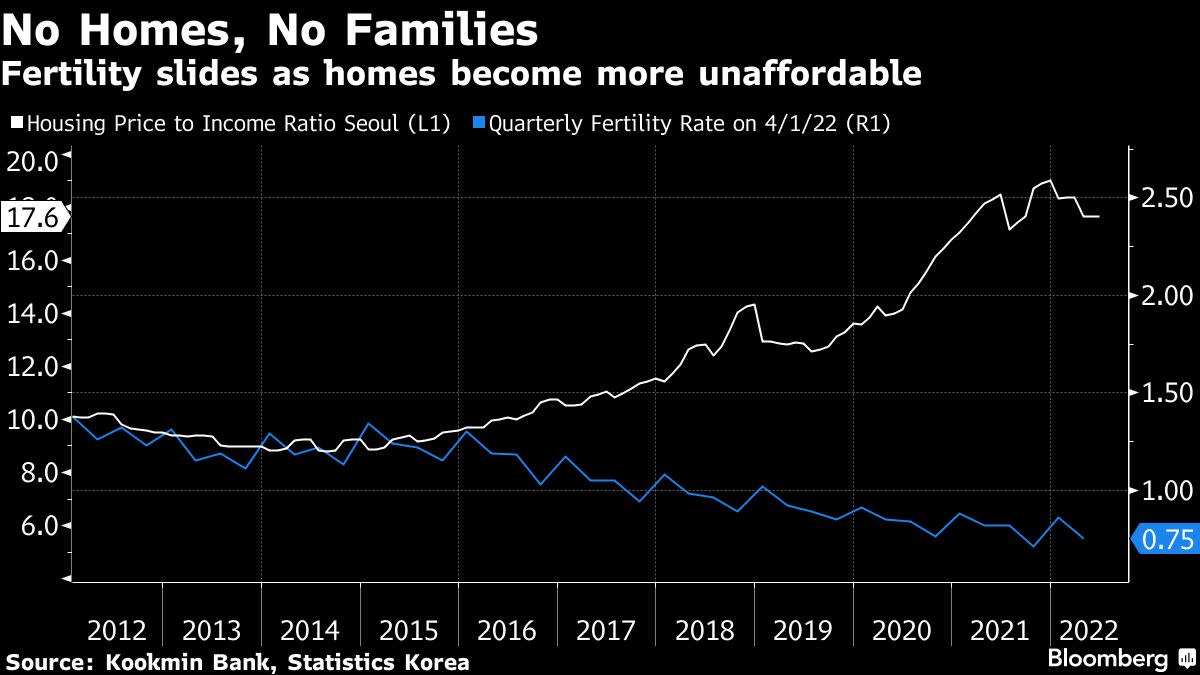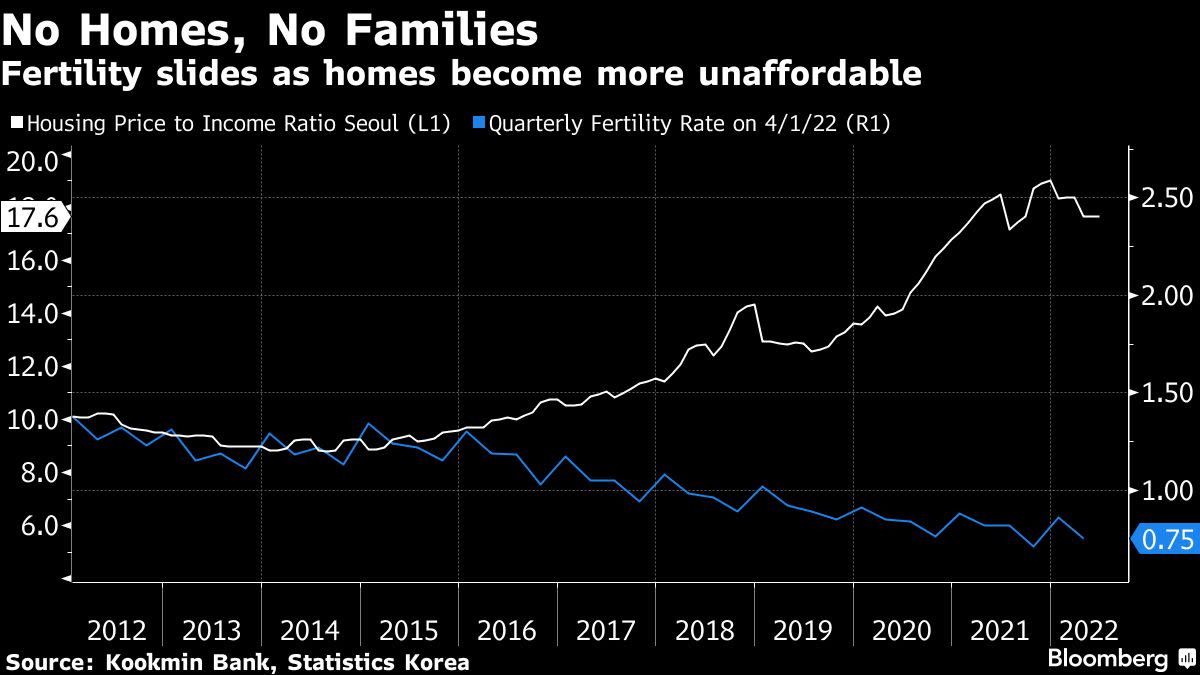
(Bloomberg) — South Koreans’ record-breaking reluctance to have babies is prompting renewed efforts to stave off a demographic crisis that threatens to weigh on the country’s economic growth and social welfare system.
Most Read from Bloomberg
The country set a fresh mark for the world’s lowest fertility rate last year, and separate projections indicate that the population will halve by the end of the century. Even Elon Musk has weighed in, portraying Korea’s situation as “dire.”
Calling the fertility lows a national “calamity,” President Yoon Suk Yeol plans to sharply increase cash payments for new parents. But like in other developed economies with an acutely low birthrate, Korean policymakers are confronting a problem that a handout alone won’t solve.
For women considering children, temporary subsidies may do little to assuage worries over years of costs. Having kids in any developed economy is expensive. But in Korea there’s evidence parents are pouring more money into their children’s futures than in other countries.
Korean families spent about $6,000 last year on education for each middle or high school student, Shinhan Bank estimates. A large portion of that goes to hagwons, private test-prep schools that offer a leg up in the college-admissions process.
After factoring in colleges and universities, it takes more than six years of average wages to pay for the education of each Korean child, the highest among countries surveyed by the National Institute of Population and Social Security Research based in Japan.
Before education, the biggest expense that paves the way for having kids is finding a suitable place to live. Preparing a small nest for a young family in Korea requires a large nest egg or loan. Housing prices have soared in recent years as low interest rates and government missteps fueled the property market.
An average house in Seoul demands around 18 years of average annual earnings, up from 10 a decade ago, assuming no loans are used.
Those daunting sums provide another reason for couples to delay having children.
Meanwhile, Korean women feel torn between jobs and children. The proportion of women dropping out of the work force between the ages of 25 and 39 is the highest in the Organization for Economic Co-operation and Development.
Part of the reason is the burden of childcare and housework. More men are taking charge, but it’s not enough. Women spend 4.4 times more time on unpaid work such as child care and grocery-shopping than men, the highest among OECD countries after Japan and Turkey.
Wider help from family, friends and the local community is also limited. The OECD ranks Korea 38th among 41 countries for the quality of social support.
The government has encouraged firms to ensure time off for new parents and warns of penalties for those who don’t. But even Koreans who are entitled to leave say they can’t afford to take it, or fear they may face some kind of retribution at work if they do.
At the same time, securing childcare can be a struggle. According to the latest government data, 44.7% of parents had to wait for their child to be admitted to a nursery in 2021 and the average waiting time was 6.9 months. Building more public nurseries is one of the most demanded measures by parents.
In-house day-care services are also rare. The share of large companies with nurseries remains stuck below 70% after earlier advances.
When women try to come back to work later on in life, the positions on offer are often unstable. Korea has the highest share of late-middle-aged women with temporary jobs in the OECD. That also feeds into the worst gender wage gap in the developed world.
The struggle to revive their careers has also discouraged women from having more than one child, if any.
Meanwhile, animosity between men and women is the most acute in Korea among countries surveyed by Ipsos.
Rising gender tensions may help explain the falling number of marriages. Some 192,500 couples tied the knot last year, down a whopping 42% from decade earlier, according to the statistics office.
Women feel marginalized and underrepresented in Korea’s persistently patriarchal society. Men feel under-appreciated and burdened by financial expectations.
They’re also resentful about one of the longest military service requirements in the developed world — a policy which also complicates the process of dating and settling down.
South Korea’s armed forces equate to 2.1% of the total labor force, fourth-highest among OECD nations, according to the World Bank website. Almost all men, including the country’s biggest celebrities, are subject to at least 18 months.
Koreans view children as limiting their personal freedom most among major countries studied by Kim Mi-sook, a researcher at the Korea Institute for Health and Social Affairs.
For their part, Korean children are less happy about themselves than in any other OECD nation, according to a team of researchers at Yonsei University in Seoul. An unhappy childhood may make people more reluctant to have their own kids when they grow up.
“The whole environment has to change in order for women to happily raise children,” said Heo Min-sook at the Korea National Assembly Research Service. “It’s pointless to pour money into subsidies that don’t last long. Only a nation with high gender equality can enjoy high birth rates.”
Most Read from Bloomberg Businessweek
©2022 Bloomberg L.P.




